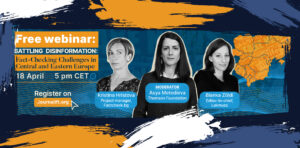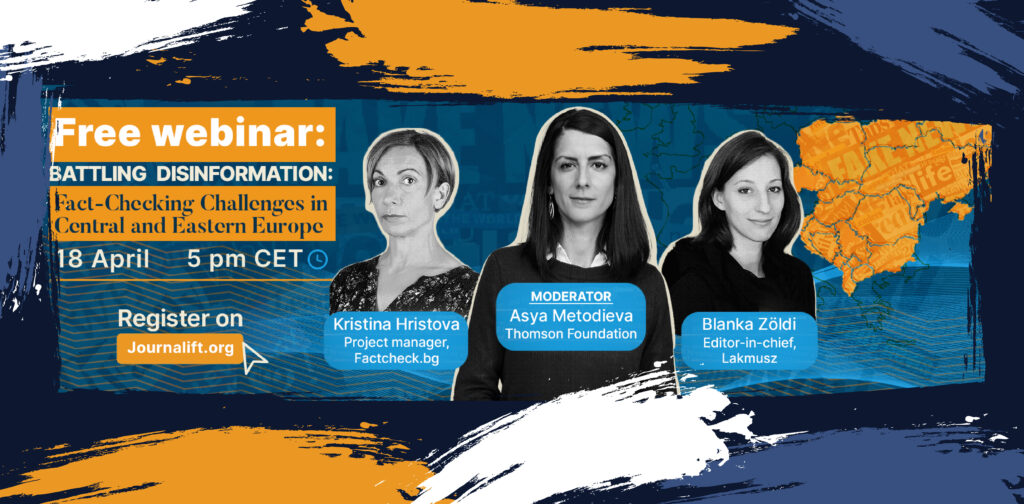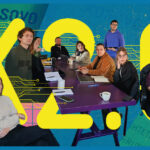Online violence and disinformation against media, journalists, activists and actors in the public sphere are common regardless of gender. Social media abuse is being used not only by authoritarian governments, terrorist organisations or what might be termed ‘bad actors’ but also by mainstream actors and political figures. The aim is to suppress critical debate, opposing opinions, and in many cases, the defence of human rights. Trolls and troll farms, bots, and cyber warfare are now standard tactics that are being used by actors against media and journalists in Central Eastern Europe (CEE) in a blatant attack on freedom of expression.

In the case of women journalists, online violence and disinformation become gendered, misogynistic, and sexualised, reproducing conservative gender tropes and patriarchal narratives that are commonplace in the public, political, and social spheres.
Threats and hate speech accompany gendered disinformation and smear campaigns. The narratives used and themes of gendered disinformation are common in CEE and in keeping with what is trending globally. Gendered disinformation is couched in moral language that asserts ideas about the preservation of family values, abortion as murder, and protecting children.
The Convention on the Elimination of All Forms of Discrimination against Women defines gender-based violence (GBV) as “violence that is directed against a woman because she is a woman or that affects women disproportionately and, as such, is a violation of their human rights.” This definition includes all forms of violence - physical, sexual, and psychosocial - as well as any threat that could lead to violence or control. The United Nations Declaration on the Elimination of Violence against Women (1993) defines Violence against Women and Girls (VAWG) as “Any act of gender-based violence that results in, or is likely to result in physical, sexual or psychological harm or suffering to women, including threats of such acts, coercion, or arbitrary deprivation of liberty, whether occurring in public or private life.”

A research study conducted by the Economist Intelligence Unit in 2021 found that the global incidence of online violence against women was 85%. The study also found that societies with deep-rooted patterns of gender inequality tended to have a greater incidence of online violence against women.
Harassment of women takes place mainly on social media channels and online communication platforms and includes threats of physical and sexual violence, gendered hate speech, bullying, trolling, stalking, sharing private information (doxing), or synthetically generated videos commonly known as ‘deep fakes’, as well as gendered disinformation.
The International Center for Journalists (ICFJ) /UNESCO’s report, The Chilling, on online violence towards women journalists recognises it as a global problem, but one with disparate offline impacts and multiple intersectional challenges that constrain the media’s organisational and individual ability to respond to threats.
The report also found that gendered disinformation utilised misogynistic harassment and abuse to ‘undercut public trust in critical journalism and facts in general.’

Declining trust in the media is having a profound impact on media business and media development in general.
Independent media in particular which, in the absence of diverse options for revenue, are turning to audiences to fund media content and outputs, are struggling in the face of diminishing levels of public trust. Disinformation can destabilise a media business as reputation becomes a prominent factor in the news information consumption cycle.
Patriarchal and conservative attitudes are dominant in V4, informing legislative and political processes, as well as social and communal interactions. Yet women continue to engage in the public sphere and there are more oppositional voices emerging as well as some attempts to counter the status quo.
Preventative and proactive measures to ensure that women have the spaces and freedom to participate in the media ecosystem are integral as are interventions that support building resilience.
Coordination and cooperation across organisations, borders and communities must be fully supported by the media, development and civil society actors alike.































